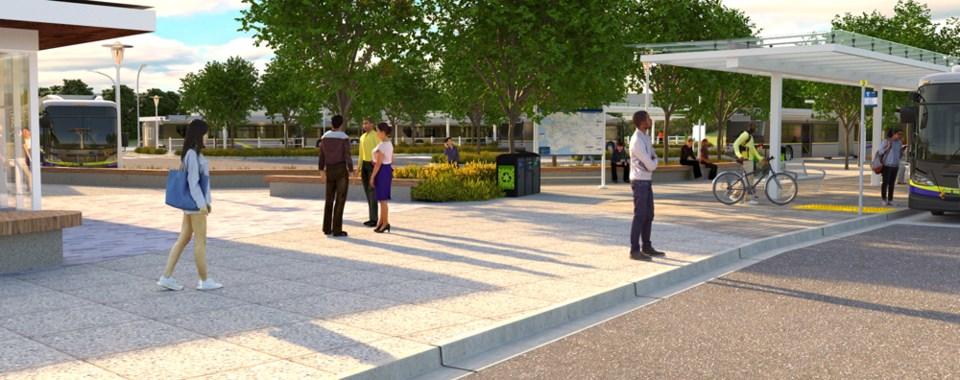When the province debuted its $30-million plans for a modernized Phibbs Exchange last month, many North Shore residents and commuters noted a conspicuous absence in the list of amenities: public washrooms.
TransLink confirmed there will be a new “comfort station,” including toilets, for bus drivers, but there are no plans for facilities where the roughly 16,000 passengers per day can go do their business.
North Vancouver retiree Christopher Kay blanched at the idea of rebuilding the transit hub from the ground up and leaving out a place for travellers to go when they’re on the go.
“It is asinine. It's irresponsible,” he said.
Phibbs is a major interchange for the transit system and it largely serves people who have to make multiple transfers or cross a notoriously congested bridge, Kay noted.
“It means, obviously, that anyone who is using Phibbs Exchange is taking, on average, a longer bus ride, and to not have washroom facilities when we’re spending $30 million is really quite unbelievable,” he said.
Elly Stornebrink said she has in the past asked if she could use the existing washroom meant for drivers and been denied.
“It’s not fair to the public,” she said. “And then women, we have certain needs. Let's put it that way.”
Stornebrink said she would like to see something along the lines of the self-cleaning public washroom outside the Vancouver Art Gallery.
Lynn Valley resident Judith Brook passed through Phibbs every working day for 31 years, and can attest to what desperation will drive people to do when nature calls.
“I have seen people run off the bus into the bushes to have a bathroom break, because we all know what traffic jams are like,” she said. “I think I may have done that myself.”
The decision is even more confounding given that the transit authority is upgrading Phibbs and planning to introduce a new bus rapid transit line across Burrard Inlet because they want to make transit a more attractive option for commuters.
“It's just wrong and I see it as short sighted. I really do,” said Brook.
In a statement, TransLink spokesman Dan Mountain said more public washrooms are coming to transit facilities in the transit authority’s 2022 investment plan – but there are only six coming across the system.
“The main barrier to installing more washrooms in the past has been making sure that washrooms are safe and well maintained, which requires significant annual operating funding for security and maintenance. It’s not as simple as building and opening them,” he said.
Each new washroom is expected to cost $1 million up front, plus $300,000 annually for maintenance and security.
“TransLink has been working with the Mayors’ Council, our board of directors, and all levels of government to get sufficient funding in place to appropriately ensure washrooms are safe and well maintained for customers,” Mountain said.
Where those six new washrooms will be installed hasn’t been decided yet, but locations will be picked based on how busy they are, whether the sites can accommodate the infrastructure, the length of the trips that passengers are making through them, and how far they are from other public washrooms, Mountain said.
North Vancouver-Lonsdale MLA and transit booster Bowinn Ma said the Ministry of Transportation and Infrastructure’s designs for the site include plumbing connections.
“I completely understand why people would like to see public restrooms at Phibbs Exchange,” she said. “Whether they'll be hooked up and made available to the public or just for employee use will be for TransLink to consider.”
A proposal will be going to the TransLink Mayors’ Council for consideration in early 2023, Mountain said. Work on the Phibbs Exhange revitalization is expected to start this fall and last until 2024.
If Phibbs doesn’t make the cut, Brook has a suggestion for TransLink.
“Then please plant a few maple trees so when we run for the bushes, we’ve got somewhere to go,” she said.



